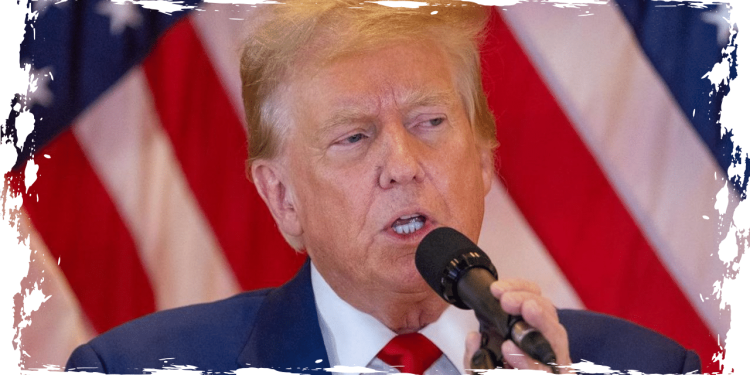Former President Donald Trump, who implemented several iterations of a travel ban targeting individuals from Muslim-majority countries during his administration, could potentially encounter limitations on his own ability to travel internationally. This potential restriction arises as a result of his recent felony conviction in New York.
At present, Justice Juan Merchan, who presided over the “hush money” criminal trial in New York, has not imposed any specific travel restrictions on Trump. The former president was recently found guilty of 34 felony counts and is scheduled to be sentenced on July 11, just four days before the Republican National Convention, where he will be formally nominated for the presidency. Despite having three other criminal trials pending, Trump has not made any announcements regarding international travel plans.
The United States, along with several other countries, prohibits the entry of foreigners with felony convictions. This restriction also applies to countries like the United Kingdom and Australia, who have strict regulations in place for convicted felons traveling to their territories, as stated by the European Travel Information and Authorisation System. Canada, which is set to host the G7 summit of world leaders in 2025, also imposes stringent requirements for visitors with a criminal record. Additionally, China maintains a ban on the entry of individuals with felony convictions.
International leaders may consider making exceptions for Trump if he were to win the presidency again. Former President George W. Bush had to obtain a special waiver to visit Canada during an official state visit due to a past misdemeanor offense of drunk driving in 1976. This raises the possibility that similar considerations could be made for Trump, even if his charges were more severe.
Trump intends to reimpose and enhance travel restrictions to the U.S. if he is reelected as president. In the past, he expressed his intention to implement a travel ban that would be even more extensive than before, referring to the prior restrictions his administration imposed on travelers from countries with predominantly Muslim populations.
In 2018, the Supreme Court upheld a revised version of his travel ban by a narrow margin of 5-4. Chief Justice John Roberts, in the majority opinion, emphasized the significant authority that presidents possess in regulating immigration. He stated that the only requirement for such actions is that the entry of the affected individuals would be detrimental to the interests of the United States. Roberts acknowledged that Trump had fulfilled this requirement by ordering a comprehensive evaluation of each country’s compliance with the risk assessment baseline and subsequently acting upon the findings.
The former president consistently characterizes the surge in undocumented migrants crossing the U.S.-Mexico border as a group largely comprised of “criminals.”
“We are actively deporting criminals from our country, achieving unprecedented numbers in our efforts,” stated the former president in a 2017 interview with the Associated Press.
While he awaits his sentencing in the “hush money” case, Trump firmly maintains his innocence and insists that he has done nothing wrong.
“I am prepared to do whatever it takes to protect our country and uphold our Constitution. I have no qualms about it,” he expressed during his speech at Trump Tower on Friday.










